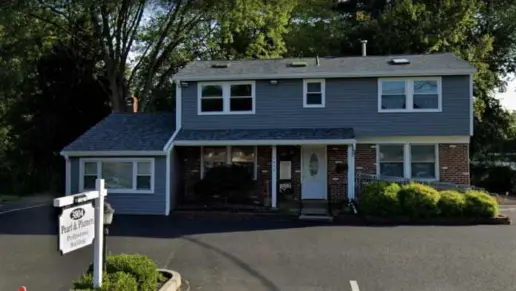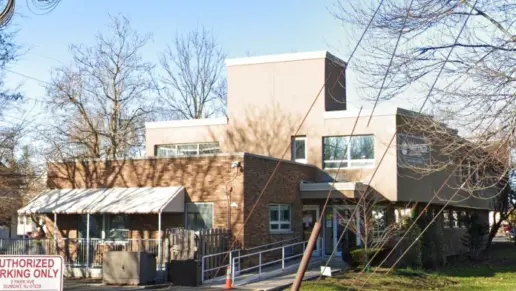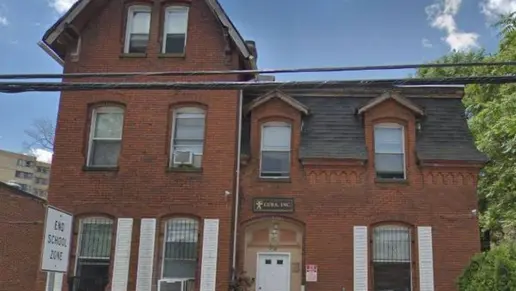About Newark Beth Israel Medical Center
Newark Beth Israel Medical Center is a hospital and part of RWJBarnabas Health that helps people overcome substance addiction in Newark, New Jersey. They have inpatient medical detox and outpatient treatment for adults, seniors, and kids. They accept private insurance, Medicare, and self pay. Financial assistance is available.
They provide assessment and triage for psychiatric and addiction related emergencies. They also have specialized services for people with co-occurring addiction and mental illness.Age specific programs, including programs for seniors, are available.
Through their comprehensive treatment approach, they tackle a wide range of mental illnesses. This includes suicidal ideation, PTSD, and contributing or compensatory behaviors like drinking and substance misuse.
Beyond immediate crisis intervention, medication assisted treatment (MAT), recovery education, and therapy sessions round out their services. They also have a complete continuum of care to evolve with your changing needs.
You can step down from inpatient care to their intensive outpatient (IOP) services once you’re medically stable and are ready to return to your home, workplace, and community. These programs require a weekly commitment and regular attendance.
Sometimes people turn to drugs or drinking after experiencing a loss or grief in their lives. I like that they prioritize mental and emotional recovery after a significant life event because this can often help patients refocus and move forward once again into a healthy, happy, and dependency free future.
Latest Reviews
Rehab Score
Gallery
Accepted Insurance








Other Forms of Payment
Private insurance refers to any kind of healthcare coverage that isn't from the state or federal government. This includes individual and family plans offered by an employer or purchased from the Insurance Marketplace. Every plan will have different requirements and out of pocket costs so be sure to get the full details before you start treatment.
Self-pay involves paying for treatment out of your own pocket. You can use savings or credit, get a personal loan, or receive help from family and friends to fund your treatment. If you don't have insurance or your insurance plan doesn't cover a specific program, self-pay can help ensure you still get the care you need.
Financial aid can take many forms. Centers may have grants or scholarships available to clients who meet eligibility requirements. Programs that receive SAMHSA grants may have financial aid available for those who need treatment as well. Grants and scholarships can help you pai for treatment without having to repay.
Addiction Treatments
Levels of Care
Treatments
Mental health rehabs focus on helping individuals recover from mental illnesses like bipolar disorder, clinical depression, anxiety disorders, schizophrenia, and more. Mental health professionals at these facilities are trained to understand and treat mental health issues, both in individual and group settings.
Programs



Clinical Services
Cognitive Behavioral Therapy (CBT) is a therapy modality that focuses on the relationship between one's thoughts, feelings, and behaviors. It is used to establish and allow for healthy responses to thoughts and feelings (instead of unhealthy responses, like using drugs or alcohol). CBT has been proven effective for recovering addicts of all kinds, and is used to strengthen a patient's own self-awareness and ability to self-regulate. CBT allows individuals to monitor their own emotional state, become more adept at communicating with others, and manage stress without needing to engage in substance abuse.
Research clearly demonstrates that recovery is far more successful and sustainable when loved ones like family members participate in rehab and substance abuse treatment. Genetic factors may be at play when it comes to drug and alcohol addiction, as well as mental health issues. Family dynamics often play a critical role in addiction triggers, and if properly educated, family members can be a strong source of support when it comes to rehabilitation.
Group therapy is any therapeutic work that happens in a group (not one-on-one). There are a number of different group therapy modalities, including support groups, experiential therapy, psycho-education, and more. Group therapy involves treatment as well as processing interaction between group members.
In individual therapy, a patient meets one-on-one with a trained psychologist or counselor. Therapy is a pivotal part of effective substance abuse treatment, as it often covers root causes of addiction, including challenges faced by the patient in their social, family, and work/school life.
Amenities
-
Private Setting
Accreditations

The Joint Commission, formerly known as JCAHO, is a nonprofit organization that accredits rehab organizations and programs. Founded in 1951, the Joint Commision's mission is to improve the quality of patient care and demonstrating the quality of patient care.
Joint Commission Accreditation: Yes
Contact Information
201 Lyons Ave
Newark, NJ 07112














